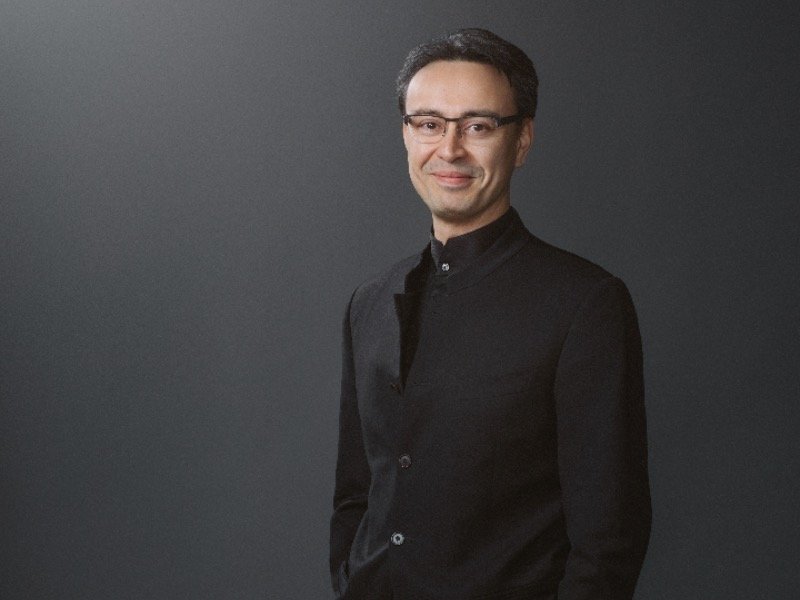Ken-David Masur makes a worthy debut with National Symphony

Ken-David Masur led the National Symphony Orchestra in music of Mozart and Mendelssohn Thursday night at the Kennedy Center.
Michael Tilson Thomas, the beloved former music director of the San Francisco Symphony, was slated to conduct this week’s National Symphony Orchestra concerts. His visit to Washington was part of a series of appearances he wanted to make with favorite orchestras. The conductor’s ongoing treatment for brain cancer led him to withdraw from this program, although he is reportedly moving ahead with other slated events elsewhere this month.
Ken-David Masur, music director of the Milwaukee Symphony Orchestra, stepped in for his NSO debut to lead a rather different program. Instead of the adventurous opener by Olly Wilson, Shango Memory, Masur led a genial rendition of the Overture to Mozart’s La Clemenza di Tito. Masur, the son of Kurt Masur, has a clear gestural style, emphatic on the cues and phrase shaping but achieving fine results. His Mozart felt neither too informed by historical performance style trends nor overly old-fashioned.
Orion Weiss remained as piano soloist for his own NSO debut, exchanging one piece in A major, Piano Concerto No. 12, for another, Piano Concerto No. 23. With the strings whittled down to around 30 players, Masur took up where he had left off in the Overture, with an orchestral introduction to the first movement that felt fleet, buoyant, and a little vanilla. Weiss took up the theme, driving the tempo forward a bit, an example of his more impatient approach.
Weiss over-relied on the una corda pedal, as if aiming for a fortepiano-like sound, as in the gossamer-light development section. Masur, to his credit, proved particularly careful about balances, making countless micro-adjustments to dynamic levels from different sections. This meticulous attention carved out a sonic space where Weiss never felt overpowered, and the free-flowing cadenza gave the pianist a chance to add expressive rubato.
The second movement, normally the highlight of this concerto, felt a little rushed by Weiss, and a little pale in the accompaniment led by Masur. In a pleasing contrast, however, the third movement, launched before enthusiastic audience members could applaud as they had after the first movement, made a much stronger impression. The wind players, in lockstep, provided lively antiphonal dialogue with the strings, and Weiss’s antic energy enlivened the returns of the rondo theme with more of his delicate, even fingerwork.
Returning to the stage, Weiss remarked that he chose his encore to honor Aaron Copland, who would have celebrated his birthday on November 14. He offered a magnificently still, understated performance of Midsummer Nocturne, written by the American composer for an abandoned collection of pieces for young pianists. Saved from among his files in 1977, this tender music provided a nostalgic ray of summer’s warmth as the nights grow cold.
The surprise improvement of the evening was the replacement of a Schoenberg arrangement of the Brahms Piano Quartet No. 1 with Mendelssohn’s Third Symphony. Known as the “Scottish,” because the composer began it on the same tour of Scotland that produced the Hebrides Overture, the piece elicited the evening’s most pleasing collaboration between Masur and the NSO musicians.
The viola section drew forth melancholy poignancy from the slow introduction’s main melody, and under Masur the amassed violin sections gave warm, lovely resonance to their soaring response. Again with meticulous balancing, Masur emphasized the aching dissonances of this mysterious piece in A minor, a more somber counterpart to the bouncy Mozart that had come before it. The cello section had its own lush moment in the sun when they took up the main theme later.
Principal clarinetist Lin Ma opened the second movement with a playful solo that set the scene for this folk music-infused dance, taken a notch too fast for ensemble comfort. That shortcoming was quickly forgotten in the luscious performance of the third movement, from the rarefied opening in the violins, again featuring plangent tone from the cello section.
Without much of a breath, Masur lunged into the Finale, pacing it expertly for intensity without an overdose of speed. Mendelssohn winds down the piece in the home key of A minor, with the clarinet interweaving a somber theme with the bassoon. Then, in a gesture of triumph, the score shifts to major in a bold statement of something like a Scottish hymn. Toward the end, after suppressing the horns so much throughout the concert, Masur unleashed them and their powerful calls had that much more thrill for having been held back before.
The program will be repeated 8 p.m. Saturday. kennedy-center.org
